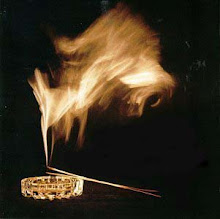What punk means to me is this: all those kids who didn't have any friends because they were nerdy or weird or quiet or dressed funny....you have a seat at our table. Anyone who didn't quite fit in, you can hang with us. Punk is the haven for all the misfits and weirdos, all the kids who weren't allowed to sit at any of the other tables in the lunchroom, or else had an entire table completely to themselves. The ones who could look forward to a daily swirly in the gym locker room toilets, or had calluses on their shoulders from being shoved into their locker in the hallway.
The main difference, to me, between punks and hippies is that hippies seem to insist on seeing the world as the way they wish it was, the way they think it should be, and are not hesitant to try and impose their views on everyone around them, and pass judgment on those who believe differently. It's like the old joke about how do you know if your friend is a vegan? (Answer: don't worry, they'll fucking tell you.) Punks, on the other hand, tend to view the world as it really is. They recognize that there is room in the world for beauty and hope and love, but that more often the world is a cruel and ugly place. They understand that all hope and beauty and love is only won through a hard fight. Where hippies think they can change the world through sheer force of will, by expanding their consciousness in their living rooms and signing petitions, punks get that to effect true change you have to take to the streets and mix it up. True change never comes without blood. And punks understand that that blood, more often than not, is ours. If you want that tree to grow in Brooklyn, you must first break up the concrete before you can plant that seed.
Punks recognize strength in numbers, and that no one really goes it alone. That's why there's such a sense of community between punks in their respective scenes. And sure, there's a legitimate complaint against mall-punk and kids who buy their clothes at Hot Topic, a commercialization and distortion of what punk has always represented (revolution in a shopping mall, anyone?), but that was bound to happen anyway. The revolution, at some point, is always (has to be?) made safe for the masses. Gil Scott-Heron was wrong, the revolution will always be televised. That's how you know when you're winning. A revolution makes no headway until it goes mainstream.
31 May 2015
Subscribe to:
Post Comments (Atom)




No comments:
Post a Comment